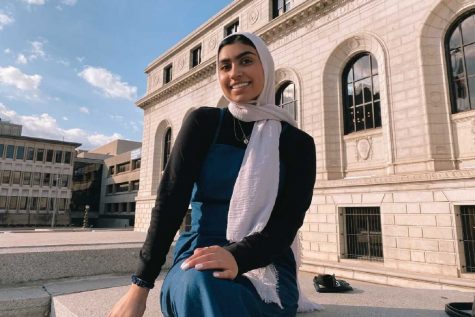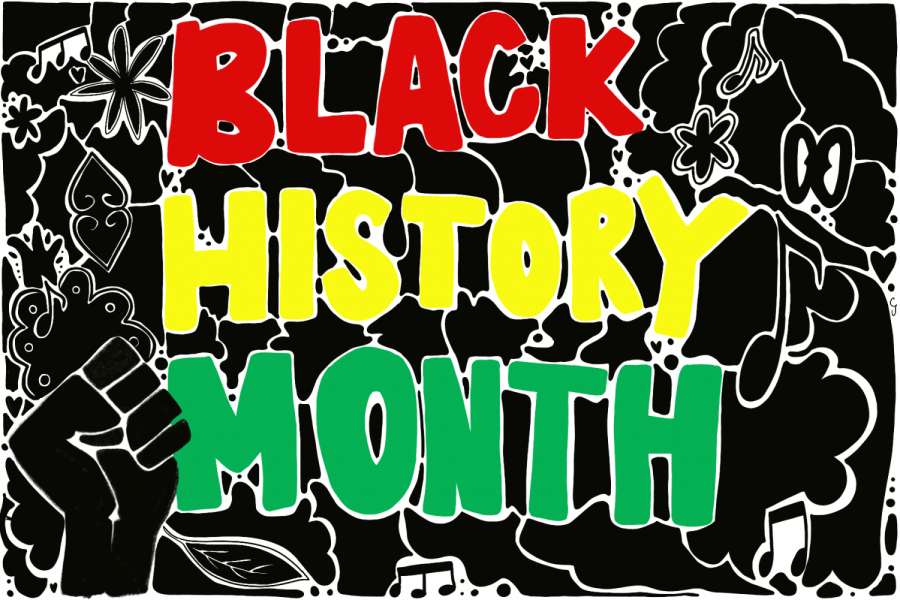How to Educate Yourself on Black History
The job to educate yourself is exactly that: your job.
A mere 29 days are devoted every year to acknowledge and recognize the experiences of Black and African people. A month dedicated to these individuals is not nearly long enough for one to truly understand the struggles and reality still faced by them to this day. However, these 29 days could be a step into educating oneself, not only this month but every single day moving forward.
When it comes to finding ways to educate yourself it is crucial to grasp that it is a process, and it most certainly is not an easy one. Dr. Christopher Tinson, the head of the African American Studies department at SLU shares his advice.
“Educating oneself about Black peoples’ role in shaping American society should be an ongoing process,” says Tinson. “It should also be one that is shaped by a commitment to a broad and deep understanding of how we got here”… (they) should know that they are embarking on a journey of social awareness but also self-awareness. I would tell them to get ready for that journey.”
In the words of Angela Davis, a political activist, “In a racist society, it is not enough to be non-racist, we must be anti-racist.” To be anti-racist means to show conscious efforts in order to push for an equitable future amongst all, no matter the color of their skin. To truly understand the complexities of U.S. racial issues, we must educate ourselves on the history of racism— and there is an endless amount of education resources to choose from.
While this is by no means exhaustive, when it comes to seeking out films, TV shows, books and plays that challenge your individual perceptions of race and culture in today’s society, this is a good place to start.
Film/Television
“13th,” “Moonlight,” “The Death & Life of Marsha P. Johnson,” “When They See Us,” “Mississippi Burning,” “Malcolm X,” “42,” “A Raisin in the Sun” and “I am Not Your Negro.”
Books
“The New Jim Crow: Mass Incarceration in the Age of Colorblindness,” “The Hate You Give,” “The Autobiography of Malcolm X,” “I Know Why The Caged Bird Sings,” “The Souls of Black Folk,” “The Color Purple,” “Incidents in The Lives of a Slave Girl” and “How to be Anti Racist.”
Plays & Black Playwriters
“Pipeline” by Dominique Morisseau, “Funnyhouse of A Negro” by Adrienne Kennedy and “Fences” by August Wilson.
Tinson also adds in a few of his recommendations stating, “One of the spaces I’d recommend is the Black Perspectives blog of the African American Intellectual History Society. The other is The Undefeated. These are two sites that offer a wealth of historical material and conversations on African American historical and contemporary issues written in a digestible manner”…“research(ing) and read(ing) works by W.E.B. Du Bois, Gerald Horne, Leslie Alexander, Dayo Gore, and Jeanne Theoharis”…“Also, there’s a wonderful book called “A Black Women’s History of the United States” by Kali Gross and Daina Ramey Berry.”
When it comes to being actively anti-racist, educating yourself is only part of the process. There are many influential figures in our society today who consistently use their voice to spread this message. Following these activists and learning more about them can, in turn, help you to use your voice to help as well, a few include: Bryan Stevenson, Esmerelda Simmons, Alicia Garza, Patrisse Cullors, Opal Tometti and Nupol Kiazolu. And in our social media-oriented world, one of the quickest ways to educate yourself on a variety of Black individuals’ perspectives and stories is to follow and engage with their content. Here is a list for getting started:
- @rachel.cargle – Rachel Cargle, public academic, founder of @thegreatunlearn, The Loveland Foundation and Elizabeth’s Bookshop & Writing Centre
- @luvvie – Luvvie Ajayi Jones, keynote speaker, podcast host, and NYT bestselling author
- @latashamorrison – Tasha Morrison, speaker, founder and president of Be The Bridge and NYT bestselling author
- @ibramxk – Ibram X. Kendi, director of Boston University Antiracism Center, writer for the Atlantic and NYT bestselling author
- @ijeomaoluo – Ijeoma Oluo, NYT best-selling author
- @eji_org – Equal Justice Initiative, led by Bryan Stevenson and working to end mass incarceration, excessive punishment and racial inequality
- @ckyourprivilege – Founded by Myisha Hill, focuses on guiding “white folx on the journey of becoming actively Anti-Racist”
- @berniceaking – Dr. Bernice King, speaker, CEO of The King Center and daughter of Dr. Martin Luther King
- @amandascgorman – Amanda Gorman, inaugural poet
- @blackandembodied – Alishia McCullough, co-founder of #amplifymelanatedvoices and licensed mental health therapist
So, what’s next? While educating yourself, you can also take the next step and act on what you’re learning. The history of Black lives is not just history, it’s the present. The same injustices heard about numerous decades ago are still present today. Tinson states, “The Black present is as important as Black history. Black people are not relics of the past; history is a window into who and where we have been. The present will determine where we’re going and who we’ll be in the future.”
To make the changes for the future, we have to start now. For the SLU community, we can start on campus and in St. Louis. If you are a student and you ever have an extra slot in your schedule, consider signing up for an African American Studies course. The AAM Studies department at SLU is filled with passionate faculty who not only teach but give their students something they can hold onto for the rest of their lives. Each course focuses on a different topic related to the African American experience and is a great learning opportunity for everyone. For off-campus opportunities, organizations such as Organization for Black Struggle, St. Louis’s Anti-Racism Organizing Collective, HandsUp United and many more are all pushing forward the agenda to be actively anti-racist.
No matter how many resources are handed out, no matter how much advertisement is put towards Black History Month and no matter how many times a professor gives a statement of inclusion on campus while going over the syllabus, the job to educate yourself is exactly that: your job. It is a responsibility to everyone, as an active member of society and our community to take the time to continuously learn, grown and be anti-racist.
Your donation will support the student journalists of Saint Louis University.






